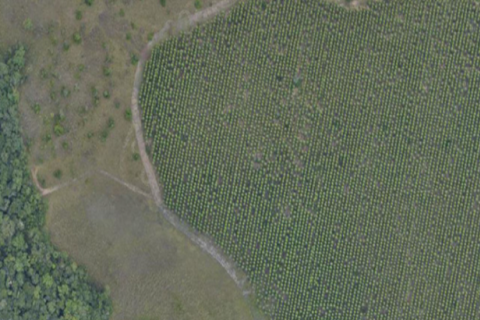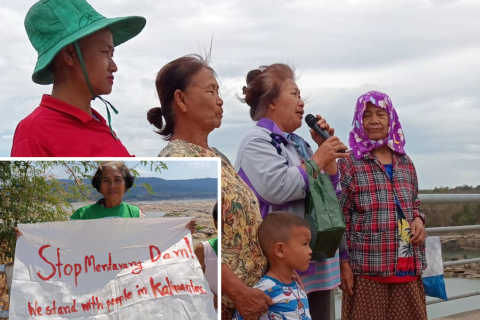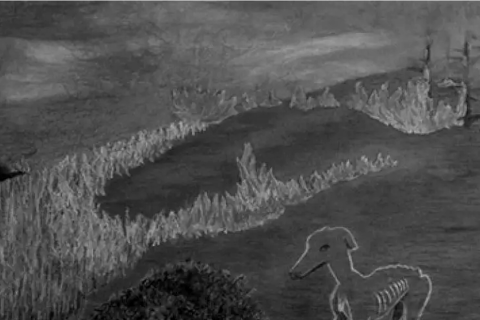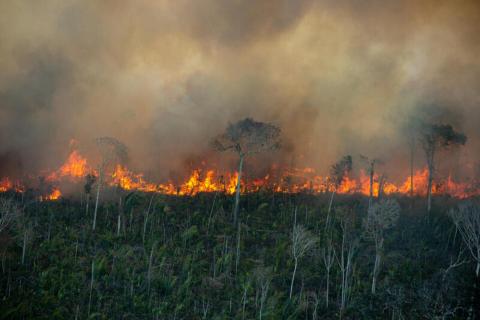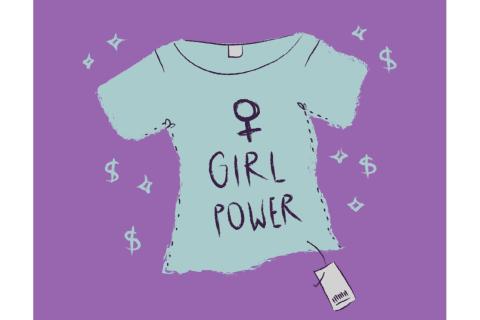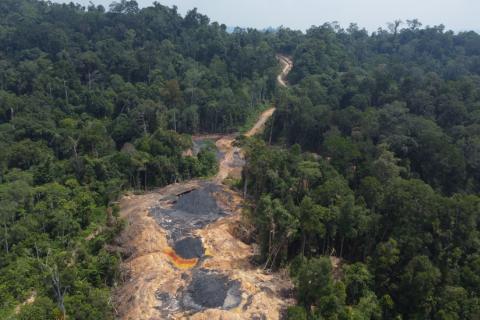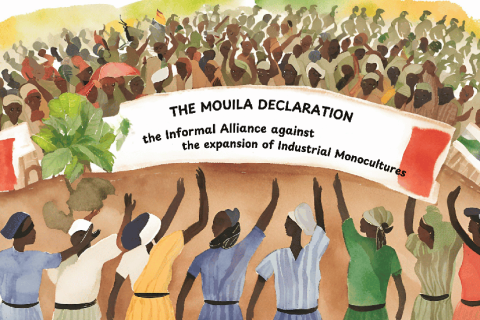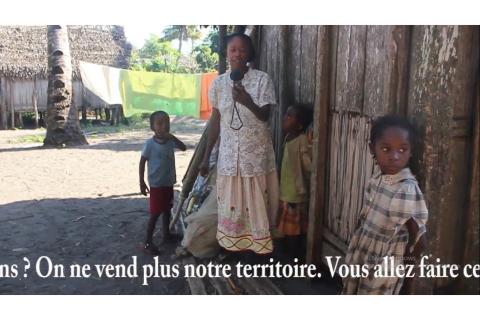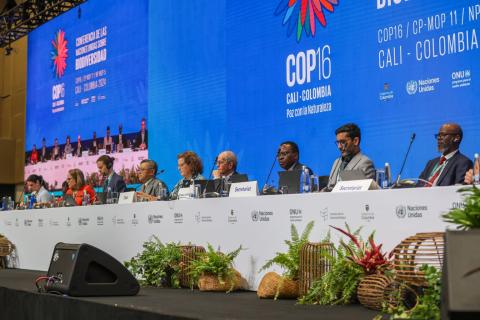Under the guise of ‘conflict mediation’ and community empowerment, the work of certain corporate NGOs results in communities continuing without access to and control over their lands, and in strengthening destructive production models. One example is the Earthworm Foundation's partnership with palm oil agribusiness in several countries. See the article and interview below.
Bulletin articles
In South Africa's Western Cape province, rural communities affected by historical land dispossession in many places also face the manifold impacts of living surrounded by industrial tree plantations. Seeking to strengthen their access to land, these communities have mobilised in a forum supported by civil society organizations, demanding participation in decision-making and other community rights.
Several companies have been expanding their tree plantations in the Colombian Orinoquía, which is increasing longstanding conflicts and violence. “These are not reforestation companies, but deforestation companies, because they have introduced invasive tree species that are not native to the territory – like acacia, eucalyptus and pine trees. So they are driving out what naturally grows here” - Indigenous Sikuani Leader
A new wave of expansion in hydroelectric power plant projects is advancing throughout the Global South under the pretext of producing 'clean energy', speed up the 'energy transition' and promote a 'low carbon economy'. On March 14, a group of communities issued a joint declaration denouncing the trail of destruction that major dams have left in their wake worldwide, rejecting further dam construction and shouting out, loud and clear: big hydroelectric power plants are not clean energy!
The "Deklarasi Solidaritas Merauke" (Merauke Solidarity Declaration, see below) has been collectively written by participants of the "Konsolidasi Solidaritas Merauke" (Merauke Solidarity Consolidation Meeting), a people's gathering that took place in the town of Merauke, South Papua Province in March, 2025. The declaration calls for an immediate halt of the National Strategic Project (PSN) Merauke.
In the first months of 2025, forest fires once again affected hundreds of families and burned tens of thousands of hectares in Argentine Patagonia. In this context, we are recalling an article from Aguayala published in WRM Bulletin 259, which explains how industrial pine plantations have been one of the main causes of not only deadly forest fires, but also land grab, deforestation, water depletion and violent conflicts with Mapuche communities. At the same time, such plantations have been falsely promoted as a solution to climate change.
On November 22, the UN Climate Change Conference COP29 ended in Baku, Azerbaijan. At one of its sessions, Brazilian authorities spoke about the next one, COP30, to be held in the Amazon region. They did so in front of a mega photo of untouched Amazon forest. However, away from Baku’s spotlights, the reality of many Amazonian peoples is one of despair at the forest being consumed by forest fires.
Initiatives by NGOs and corporations with a focus on the “gender issue” that distort and depoliticize the feminist struggle are more and more common. The various examples of “purplewashing” do not tackle the structural causes of oppression over women, perpetuating systemic inequalities within the capitalist system.
In the province of East Kalimantan, the World Bank is supporting the Indonesian government’s first jurisdictional REDD programme. International conservationist NGOs, TNC and WWF, have been playing a key role in the preparation and execution of the programme. While they proclaim it to be a “success story” (1), this programme is full of contradictions. Available in Indonesian.
The just-released “Mouila Declaration” is a message of resistance, solidarity and unity from communities and grassroots organisations of the Informal Alliance against the expansion of Industrial Monocultures.
“We declare our opposition to the mining project” - that is the message from the community of Sainte Luce to QIT-Madagascar Minerals (QMM) and Malagasy authorities. The community declared their opposition to the company's intentions to mine ilmenite – a mineral used in white paint and plastics, among other products – as this would destroy their lands and fishing grounds. They made their position clear in a letter and video testimonies, which they delivered to the Rio Tinto subsidiary and authorities in December of 2023.
The proposal to “close the biodiversity finance gap” does not address the underlying causes of biodiversity loss. Instead, it intensifies the commodification of nature, which allows the corporate and financial sector to profit from the environmental crisis. Andre Standing, member of the Coalition for Fair Fisheries Arrangements (CFFA), offers an analysis of this situation in this interview, which was published by Acción Ecológica during the COP16 of the Convention on Biological Diversity (CBD).

